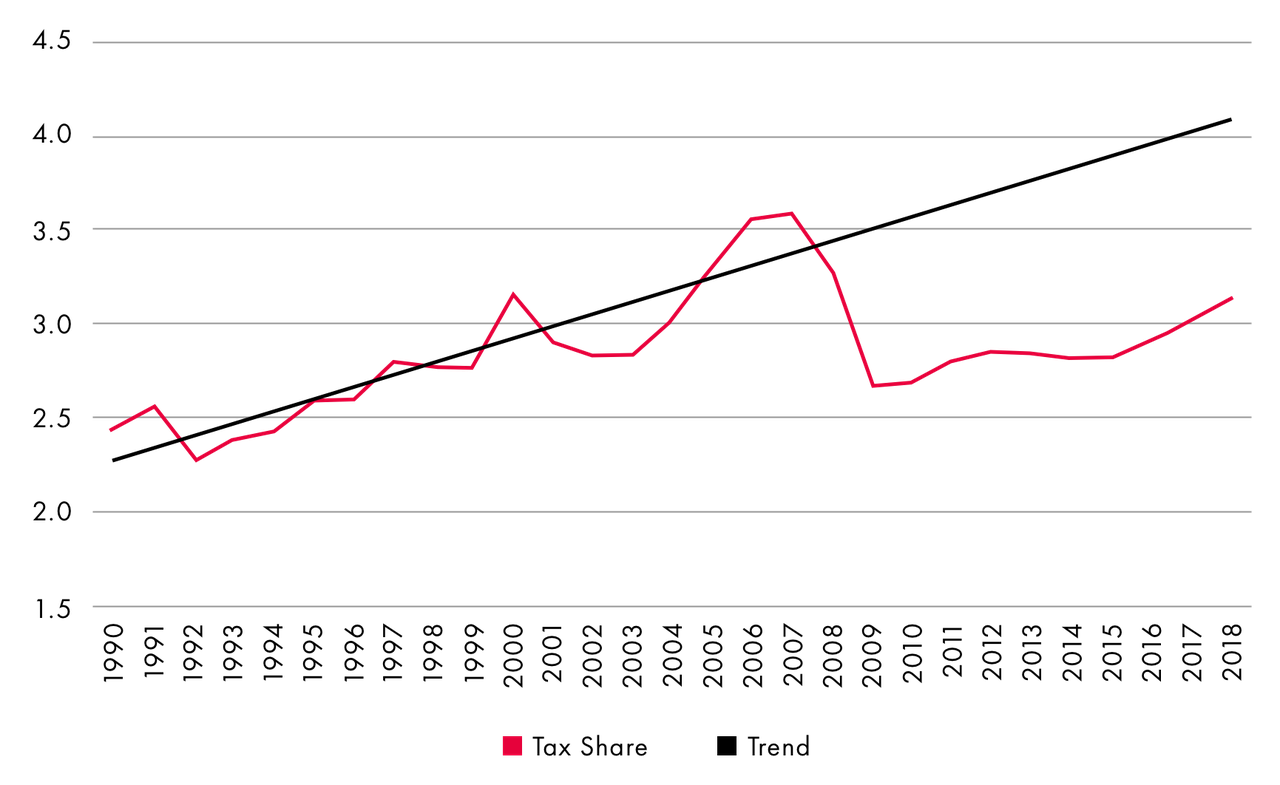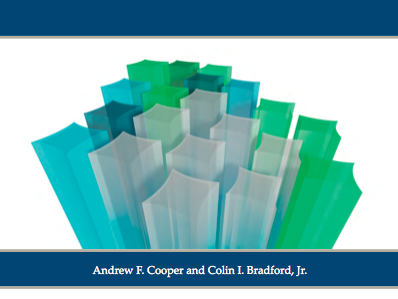The rise of the intangibles economy — in which value is based on data, brands, intellectual property and other “soft” assets — poses numerous problems of governance, including how we measure economic activity; how we classify products (are digital products goods or services?); and, perhaps most importantly, how and where economic returns are booked — which has a bearing on where, how and to what extent they are taxed.
The new global minimum corporate tax agreement — finalized recently at the Organisation for Economic Co-operation and Development (OECD), endorsed by Group of Twenty leaders in Rome, and signed, so far, by 136 countries representing 90 percent of global GDP — is bound to put this discussion front and centre.
Taxes on capital have always faced the obvious complication that capital is mobile. Left to its own devices and all else being equal, investment will naturally seek lower-cost tax regimes. Public finances have thus traditionally been supported mainly by taxes on what is tangible and relatively harder to move: property; labour; physical resources; and, increasingly, households, through consumption-based taxes. In the so-called rich countries’ club of the OECD, only about 10 percent of government revenue comes from taxes on corporate profits. That is what the new global minimum corporate tax agreement aims to change. Its “two pillars” are a minimum corporate income tax rate of 15 percent and the reallocation of some taxation rights on multinationals to the markets where their services are purchased and consumed.
Intangible capital is particularly mobile as intellectual property — patents, copyrights, trademarks — can be parked in a low-tax jurisdiction of choice — for example, Pfizer, Bristol-Myers Squibb and Microsoft have relocated a considerable part of their research and development units and patents from their home countries to low-tax jurisdictions such as Ireland. Governments have, effectively, aided and abetted such tax avoidance practices by engaging in industrial policy through tax competition to attract foreign investment. That sets up a competitive race to the bottom on corporate income tax rates.
With the digital transformation, taxation of corporate income has become particularly vexing because it enables multinationals, in particular, the largest digital platform firms such as Google, Facebook and Amazon, to conduct business and earn profits through a virtual presence in a given jurisdiction — a presence that isn’t taxable locally under corporate tax principles developed for the physical economy. A local “permanent establishment,” that is to say, a tangible, physical presence, is typically the basis for taxation. And even when digital platform companies do have local affiliates, their practices with respect to attribution of profits can still leave the local government with little or no corporate tax revenue accrued.
Statistics are instructive here. As the knowledge-based economy developed post-1980, the share of income accruing to capital began to rise while labour’s share of income began to decline on trend. Nonetheless, corporate tax revenue in the OECD was buoyant during this period, rising from about 2.5 percent of GDP to about 3.5 percent of GDP (Figure 1), even in the context of a worldwide decline in corporate tax rates from the early 1980s onward.
However, as intangible investments in the advanced industrial economies overtook their tangible counterparts following the 2008 global financial crisis, the cyclical recovery of global corporate tax revenue remained on a clearly lower-trend path than it had been previously, even as the share of income flowing to capital continued to rise.
Figure 1: Corporate Taxes as Share of GDP — OECD Average

To provide some perspective on the fiscal consequences of this: had the corporate tax share reverted to its previous historical trend by 2018, corporate tax revenue in the OECD would have been about four percent of GDP on average, versus the actual 3.1 percent, or on the order of $584 billion higher, given OECD GDP in 2018 of $61 trillion (values throughout in US dollars).
What’s more, this forgone revenue appears to be largely additional to the reported estimates for tax losses due purely to the tax haven effects of the preceding era. For example, in a study based on mostly pre-2008 data, before this additional gap showed up, the revenue loss to OECD countries from tax havens is placed at just over one percent of GDP. In developing countries, the problem is likely even more severe. Thus, even as the digital transformation has turbocharged the rise of the intangibles economy, it has also exacerbated the problem of corporate tax erosion.
The consequences for society are, of course, enormous: forgone corporate tax revenue translates into forgone resources for health care, security and defence, education, transportation, and other government services on which the citizens of advanced democracies rely.
Not surprisingly, while tax havens have been around since the twentieth century, governments have only been truly galvanized into action since the global financial crisis. It led to a number of initiatives, including measures by the US federal government on foreign-derived intangible income and global intangible low-taxed income; a slew of unilateral digital services taxes imposed at rates ranging from 1.5 percent to 7.5 percent on variously defined gross revenue streams of large companies; and, most generally the OECD’s base erosion and profit shifting (BEPS) action plan, which has culminated in the OECD and Group of Twenty’s proposed two-pillar Inclusive Framework on BEPS.
A Problematic Solution
While the broad acceptance of the new framework is a promising start, how well it responds to the issues is open to question.
First, the expected increase in the flow of revenues to governments under these proposals (about $150 billion) seems small compared to the scale of the tax avoidance that the knowledge-based and data-driven economy has allowed, which — at more than $1 trillion annually for OECD member countries alone, based on the estimates above — appears to be an order of magnitude larger.
Second, the taxing rights on profits that are transferred to end markets (representing about $125 billion of annual profits) imply the reallocation of about $30 billion in annual revenues, if we apply the OECD average corporate tax rate of about 23 percent.
Quite aside from the question of how the revenue impacts of the framework stack up relative to the scale of shifted profits, the reallocated taxing rights look even smaller when one takes into account the value of data that is captured by platform firms.
One way to estimate the value of this data is to equate it to the value of free services over the internet that companies such as Google, Facebook and Amazon provide as a barter exchange for data. The value of free internet services has been estimated in the United States to be about two percent of GDP. For the OECD, this would imply about $1.2 trillion in value annually, of which about two-thirds or over $800 billion would be generated outside the United States and would flow mainly to US platform firms.
This value does not show up in national economic accounts, trade statistics or profit statements. It appears only in the market valuation of firms. If we think of it as a capital gain that is taxable at about 20 percent, it would imply a tax value flow of over $160 billion annually from end markets to the headquarters jurisdiction of the platform firms.
Importantly, this value is over and above the recognized revenues that platform firms earn from selling services based on the data they collect — only these recognized revenues have been taken into consideration in formulating the new global minimum corporate tax agreement.
Third, the proposals are complex; the thresholds invoked are arbitrary and will certainly invite gaming. There is likely more than one devil to be encountered in the details as the new framework is applied. How robust the agreement will be in the age of intangibles remains to be seen.
Fourth, while the 136 signatory jurisdictions account for more than 90 percent of global GDP, as we have mentioned, there are many countries outside the framework that retain other options — for example, the UN Model Double Taxation Convention, which might not be reconcilable with the OECD’s approach.
Insofar as these various options may lead to disputes, there is the further matter of tax-dispute resolution — which will bring its own set of problems needing to be resolved. This is already evident from the ongoing impasse over the WTO’s Appellate Body and the criticisms that have been levelled on the types of dispute settlement mechanisms available in investment agreements.
Finally, while the revenue gains for developing countries are expected to be greater as a proportion of existing revenues than those in the advanced economies, the amount of tax transferred is likely to be small in absolute terms — and very small relative to these countries’ digital infrastructure needs.
In Sub-Saharan Africa, for example, as of 2020, less than 40 percent of the population used the internet compared to a global average of 60 percent. Ultimately, the importance of tax reform in the digitalizing economy goes beyond preventing tax avoidance. It’s about fostering sustainable development and creating a foundation for future prosperity.
Whether in developing countries or developed ones, private companies such as Google, Facebook, Amazon, Microsoft and others that prosper in the digital economy will need to shoulder their fair share of the burden to support the development of the public digital infrastructure that underpins their private success.
Are we there yet, with the OECD’s new concord? It’s a step in the right direction but there’s a long journey ahead to fully come to grips with the challenges of taxing capital in the age of intangibles.



